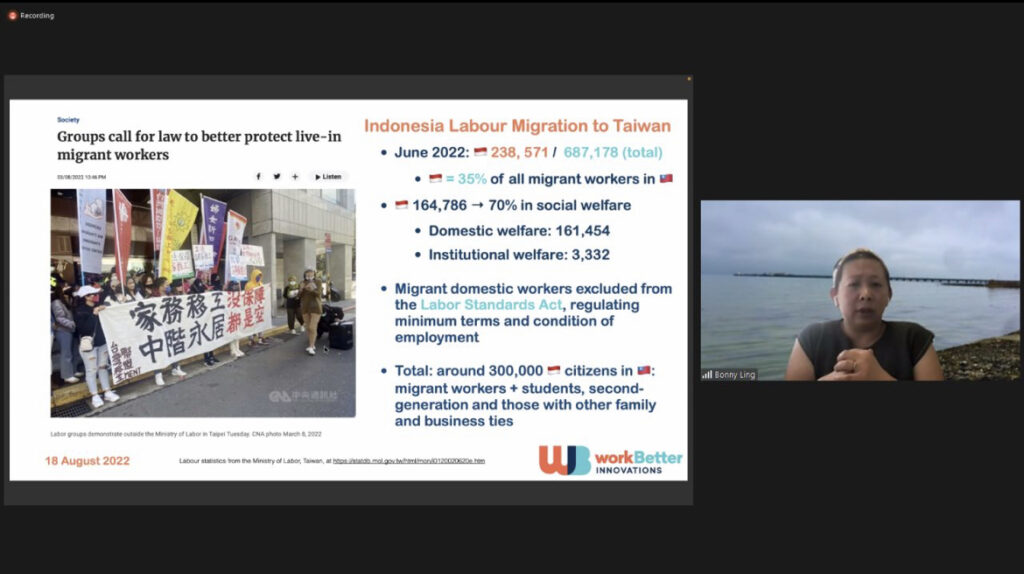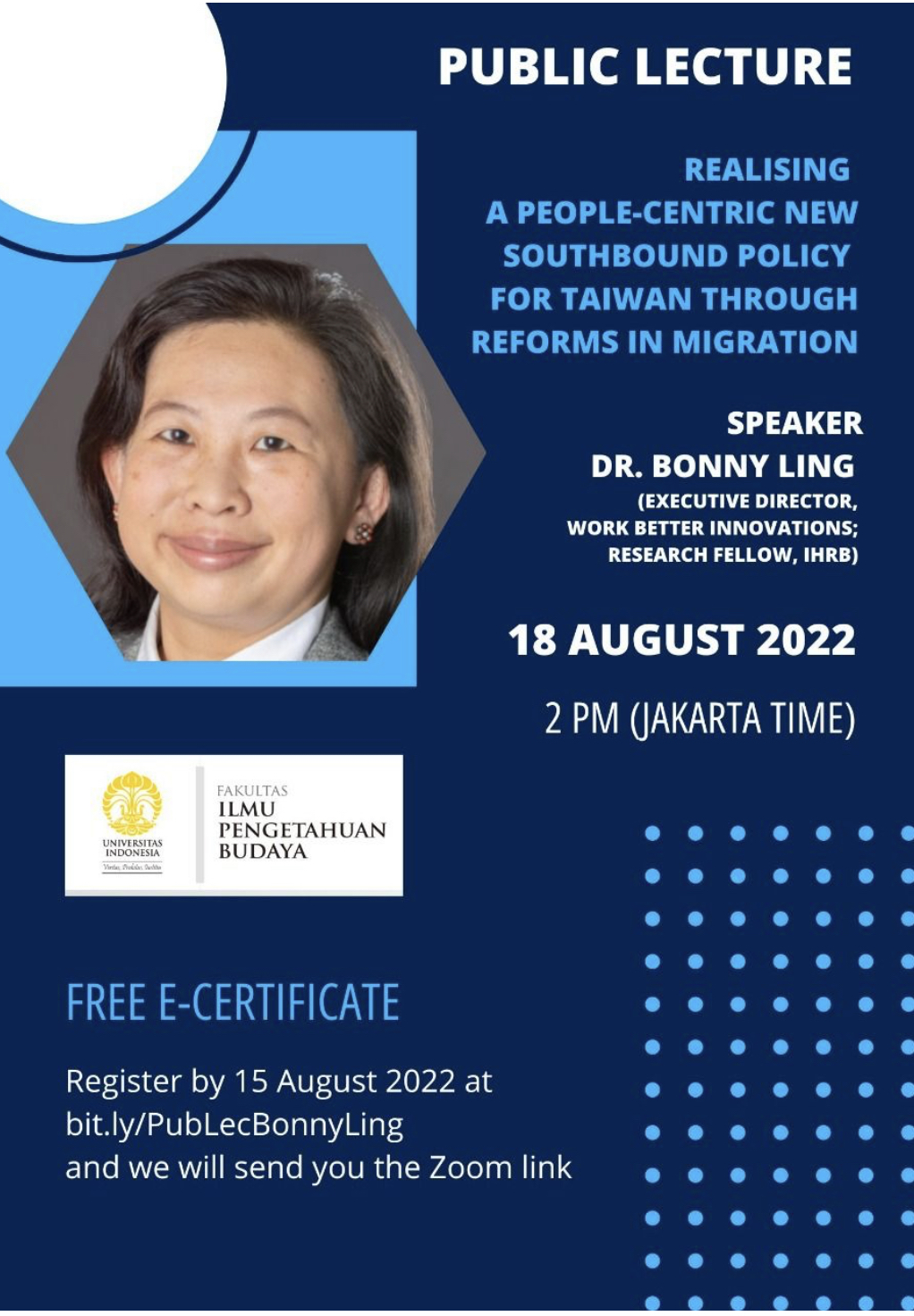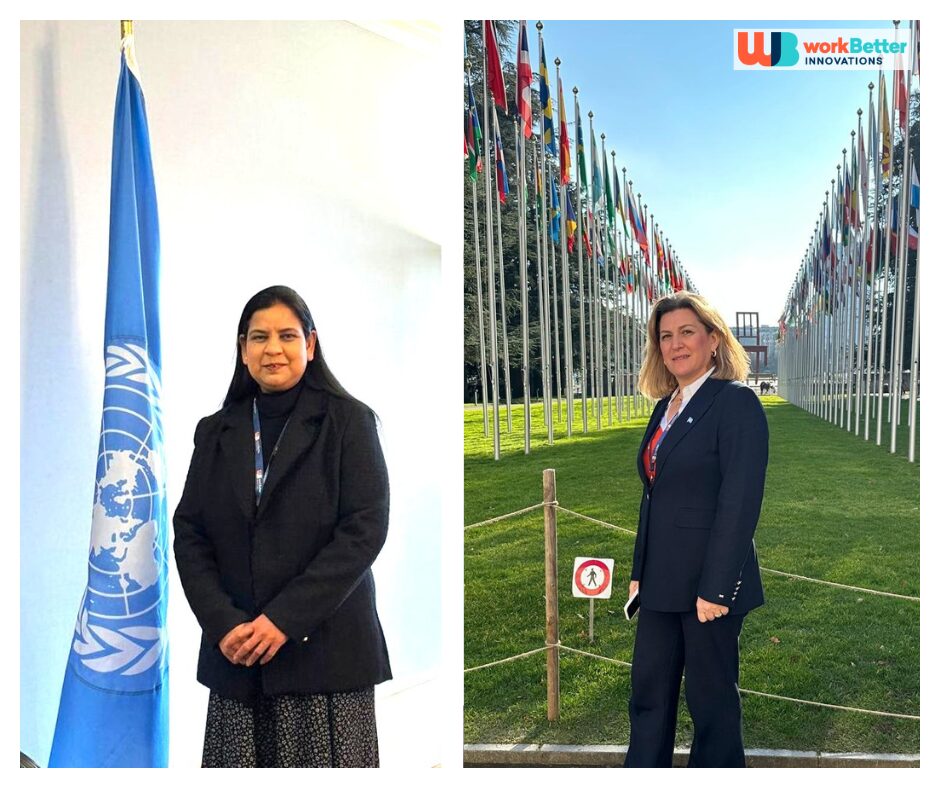18th August 2022. CEO Dr Bonny Ling is invited to present her lecture ‘Realising a People-Centric New Southbound Policy for Taiwan through Reforms in Migration’ at the University of Indonesia.
The main points of discussion were debt bondage as an indicator of #forcedlabour, the restrictive experiences faced by migrant workers during #COVID, the urgency for implementation of zero recruitment fees for #migrantworkers and the need for global adoption of the #EmployerPays principle.

In light of recent findings published by the Guardian, the discussion proves to be more timely than ever.
The Guardian investigation revealed that seasonal labourers from Indonesia working on UK farms were charged recruitment fees of up to £5000 by freelance brokers, effectively in breach of UK law. Due to a loophole in the legal system, governmental authorities in the UK including the Home Office and the GLAA are unable to directly monitor the recruitment sector abroad. As such, South East Asian workers coming to the UK in search of work risk exploitation from their recruiters.
A solution to ending the plight faced by so many migrant workers is the adoption of the ‘Employer Pays’ Principle, Dr Ling’s lecture emphasised. This principle states that:
‘no worker should pay for a job – the costs of recruitment should be borne not by the worker but by the employer’ (The ‘Employer Pays’ Principle)
And it is a fundamental step in realising the UN Sustainable Development Goal of decent work for all. Until more is done to reform immigrant workers policy at a global level, modern slavery will continue. Dr Ling also emphasized the importance of data when dealing with matters of labour migration:
‘Such data ought to be disaggregated to ensure that the specifics, such as industry, location and gender, are utilised to better understand #migrantworkers’ vulnerabilities for appropriate response’. – Dr Bonny Ling
Overall, the presentation underscored the importance of improving standards for the employment of #migrantworkers in South East Asia and beyond, through better global cooperation on legal reforms, increased levels of education on labour rights, and improved access to data analytics.






